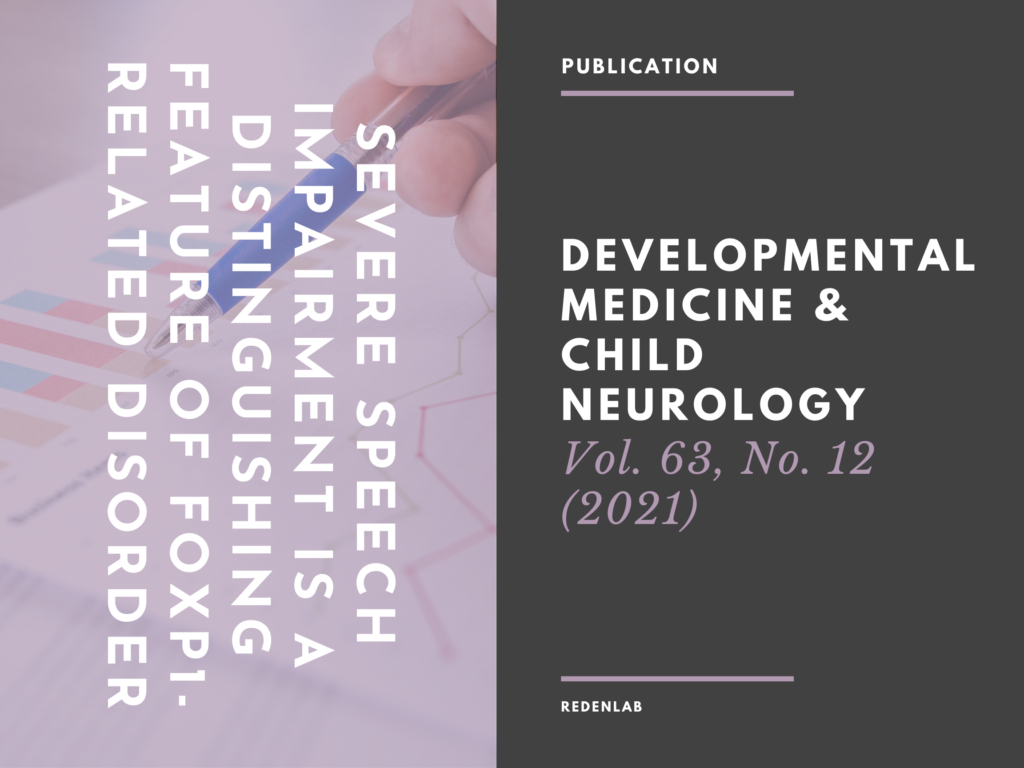Redenlab’s pediatric specialist, Prof Angela Morgan and her team recently published work on the speech and language phenotype of FOXP1-related disorder. The study was published in DEVELOPMENTAL MEDICINE & CHILD NEUROLOGY.
FOXP1-related disorder is characterized by a complex speech and language phenotype with prominent dysarthria, broader motor planning and programming deficits, and linguistic-based phonological errors. Diagnosis of the speech phenotype associated with FOXP1-related dysfunction will inform early targeted therapy.
AIM
To delineate the speech and language phenotype of a cohort of individuals with FOXP1-related disorder.
METHOD
We administered a standardized test battery to examine speech and oral motor function, receptive and expressive language, non-verbal cognition, and adaptive behaviour. Clinical history and cognitive assessments were analysed together with speech and language findings.
RESULTS
Twenty-nine patients (17 females, 12 males; mean age 9y 6mo; median age 8y [range 2y 7mo–33y]; SD 6y 5mo) with pathogenic FOXP1 variants (14 truncating, three missense, three splice site, one in-frame deletion, eight cytogenic deletions; 28 out of 29 were de novo variants) were studied. All had atypical speech, with 21 being verbal and eight minimally verbal. All verbal patients had dysarthric and apraxic features, with phonological deficits in most (14 out of 16). Language scores were low overall. In the 21 individuals who carried truncating or splice site variants and small deletions, expressive abilities were relatively preserved compared with comprehension.
Click here for more details

